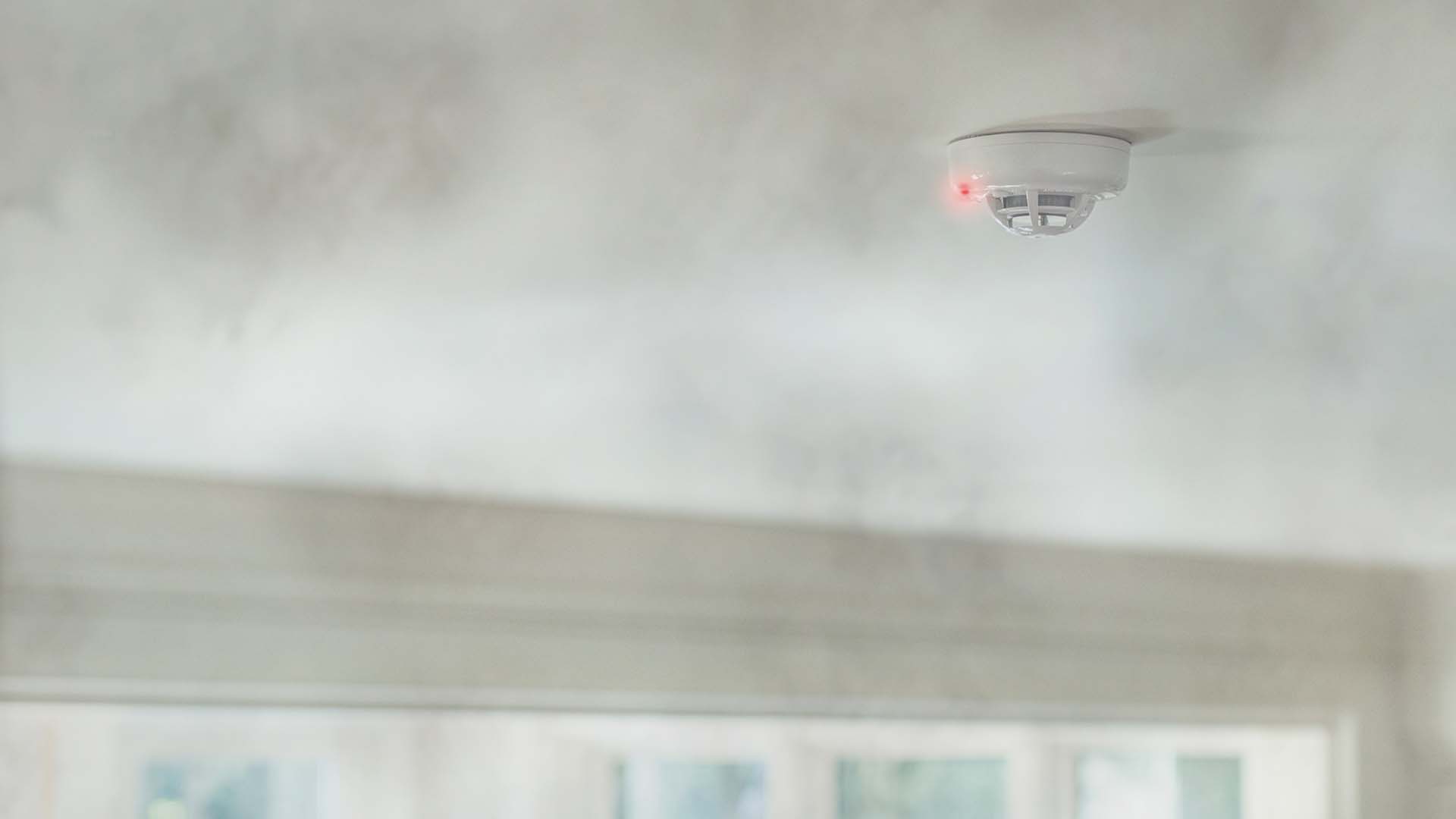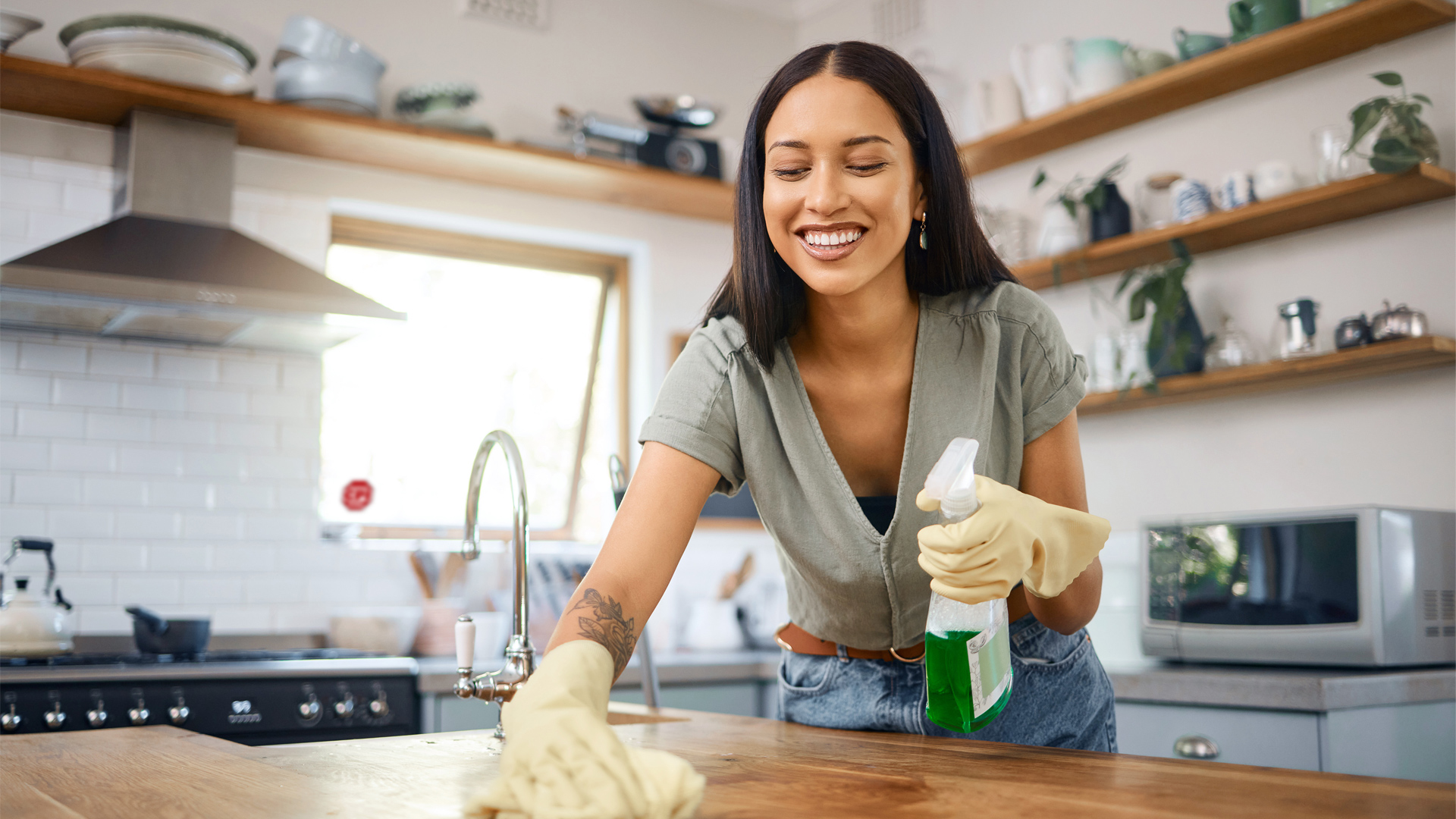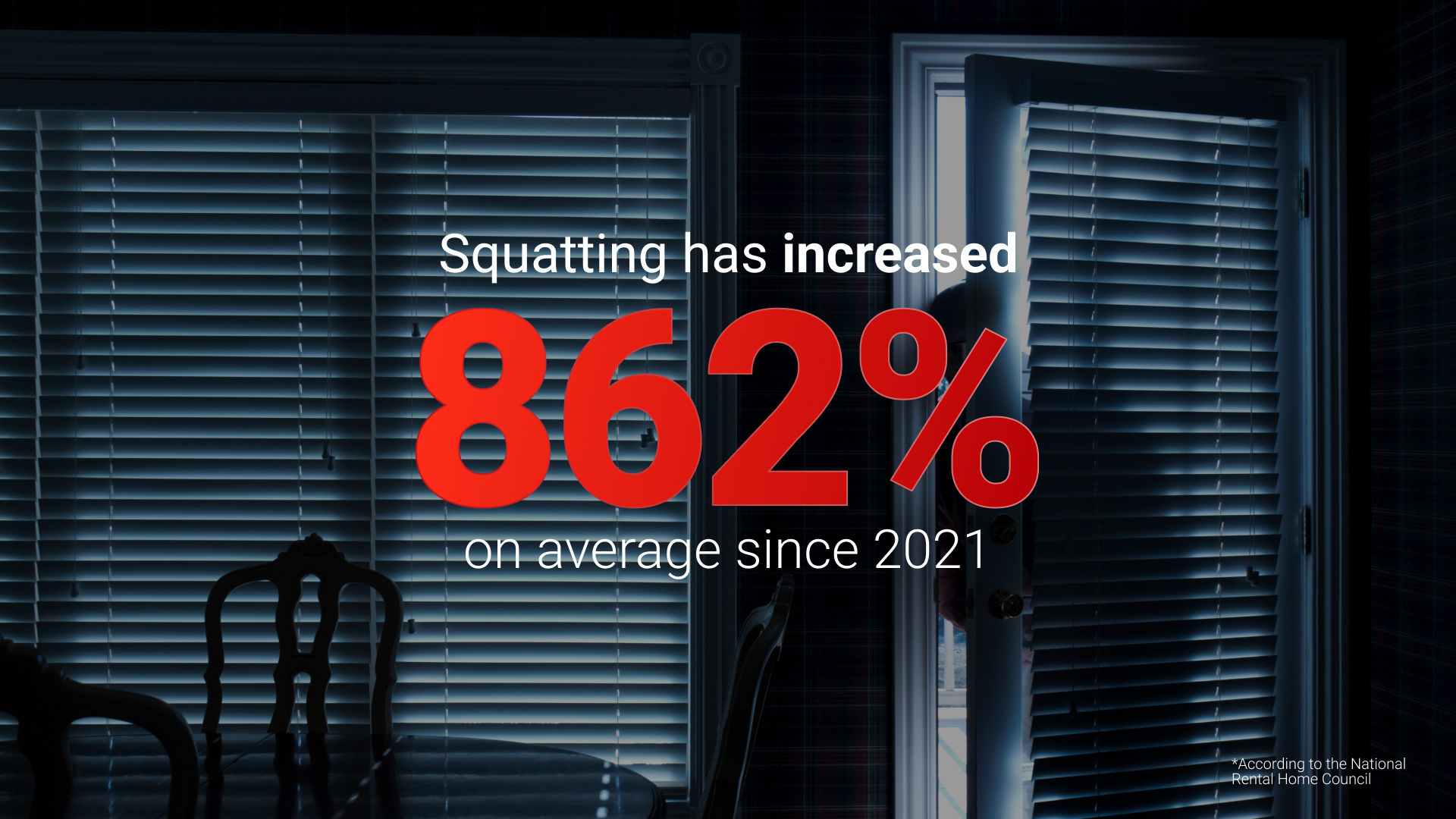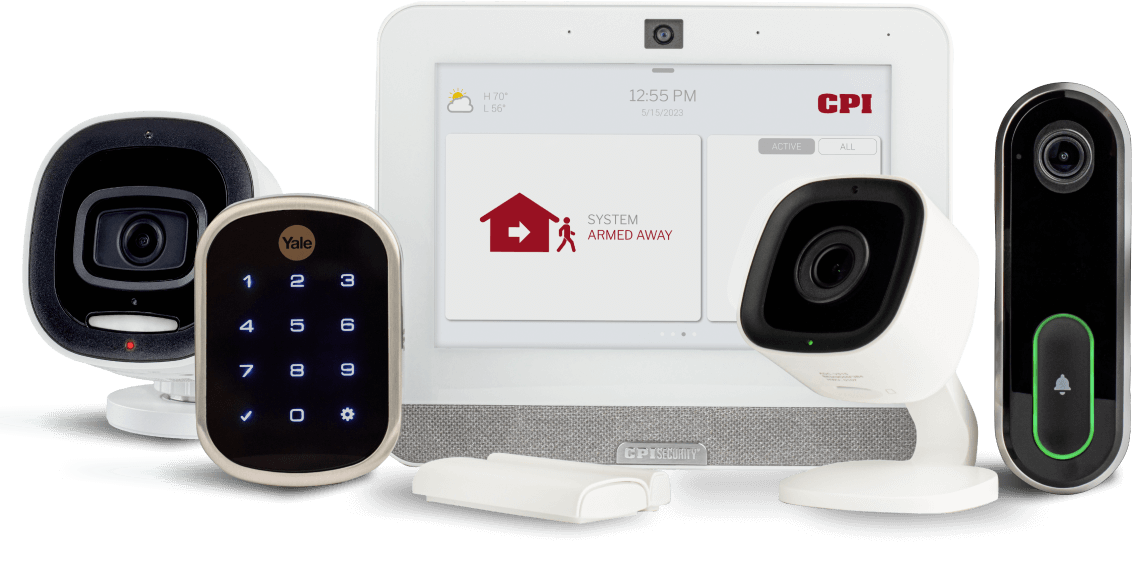Spring is officially here! Flowers are blooming, the weather is warming, and across the country, 3 out of every 4 Americans are participating in the annual purge that is spring-cleaning. Whether you are tackling the task alone or enlisting help from family and friends, it is important to take all necessary safety precautions to keep your spring-cleaning injury and incident free. Here are our favorite tips to ensure a safe and successful spring-clean.
7 Spring-Cleaning Safety Tips
- Avoid Cluttering Near Heating Fans/Vents
- Don’t Store Flammable Items in the Attic
- Wear Protective Gear
- Take Slip & Fall Precautions
- Dispose of All Hazardous Materials Properly
- Don’t Mix Your Chemicals
- Make Sure Your Security Sensors are Working
Avoid Cluttering Near Heating Fans/Vents
Sure, we’ve all stacked boxes or items in the corner of a room to make space for our deep cleaning, but a pro tip here is to avoid cluttering up the spaces near heating fans, the furnace, or vents. A critical aspect of proper spring cleaning is ensuring air can flow freely throughout your home. Any clutter near heating fans or vents can impede airflow and cause an unsafe situation in your home. Not to mention, it could also be a fire hazard if you have too many things cluttered around the furnace. To prevent this from happening, make sure that these areas remain clear before starting any deep-cleaning activities.
Improved airflow can also help rid your home of unwanted allergens and mold spores, an issue for many individuals. To combat this, dust all surfaces, including hard-to-reach areas, like ceiling fans and light fixtures. It’s also a good idea to wash all bedding and curtains to remove any build-up of allergens. By taking these steps, you’ll have a clean and organized home and improve the air quality, making it a healthier and more enjoyable living space.
Don’t Store Flammable Items in the Attic
Storing flammable items in the attic might seem like a practical solution for freeing up space in your living area. However, we recommend NOT doing this.
The attic is potentially the hottest part of your home, especially during the summer months. This increased temperature, and the lack of airflow, can create the perfect storm for a fire to start and spread with disastrous consequences.
Moreover, the attic usually houses electrical wiring, heating and air conditioning systems, and other heat-generating equipment. This equipment can malfunction or overheat, causing a spark that could ignite the flammable items stored in the attic.
CPI Bonus: If you have a CPI Smart Smoke Detector, when a fire is detected, the integrated technology from the Smart Smoke Detector to your Smart Thermostat will automatically shut off the HVAC unit to mitigate the spread of the fire.

Wear Protective Gear
Spring-cleaning is no time to don your new derby outfit. The cleaning products you use and the areas you’re cleaning may contain hazardous chemicals, dust, or germs, which can have adverse effects on your health, especially if you have allergies or respiratory issues.
Keep you and your family safe by ensuring that you wear the appropriate protective gear. We’re not saying to go out and buy a hazmat suit. But, at minimum, we recommend wearing gloves, face masks for extra dusty areas, and other necessary equipment.
Take Slip and Fall Precautions
In addition to masks and gloves, we recommend that everyone also wear closed-toed, non-slip shoes. The closed toes will help keep your feet safe in the event of a dropped box or piece of furniture, while the non-slip soles can help you avoid Charlie Browning on the newly-washed floor.
Spring-cleaning often involves climbing ladders or balancing on chairs to reach hard-to-get areas. To avoid slips, trips, and falls during this process, make sure to properly secure your ladders. You should also always have a spotter (especially if you are getting on your roof), as another pair of eyes and hands to help steady ladders and safety check your actions.
CPI Bonus: Falls happen. Remember, you can always trigger the in-app panic button to let CPI Security know you need help. Our Central Station Operators will come over the two-way system, and you can communicate with them even if you can’t get up. We’ll get the authorities there whether you need police, firefighters, or EMTs.
How to Trigger the In-App Panic Button
Dispose of All Hazardous Materials Properly
It’s easy to overlook the importance of properly disposing of hazardous materials when doing a deep clean. However, it’s crucial to remember that these items pose a significant risk to the environment and human health if not handled correctly.
Many household hazardous materials, such as chemicals, batteries, and electronics, cannot be put in the regular trash bin and require special disposal methods. Contact your local government or waste management service to find out where you can safely dispose of these items. Not only will you be doing your part in protecting the environment and public health, but you’ll also avoid potential fines or penalties for improper disposal.
Don’t Mix Your Chemicals
Spring-cleaning is not the time to start playing amateur chemist. Mixing cleaning chemicals can be a dangerous practice that can lead to severe health issues, fires, or explosions. Certain cleaning products contain chemicals that can react with one another, creating toxic fumes or other hazardous substances. For example, combining ammonia and bleach creates a toxic gas known as chloramine. * Chlorine bleach and acid cleaners, when mixed, can produce a poisonous gas called chlorine gas, which can cause respiratory problems, chest pain, or death in severe cases.
Additionally, some cleaning products contain flammable ingredients that can lead to fires or explosions when mixed with certain chemicals. Mixing acids with bleach or ammonium can result in a chemical reaction that generates heat, which can cause an explosive risk. **
Make Sure Your Security Sensors are Working
As you move from room-to-room deep cleaning your home, take a few minutes to test your security sensors. Make sure your smoke detectors, carbon monoxide detectors, and window/door sensors are working correctly.
CPI Benefit: Although it never hurts to double check that your smart security devices are working, with CPI devices, you will get an alert in the CPI inTouch™ app whenever a device needs maintenance. You can reach out to CPI’s customer support team for further assistance.
These sensors play a crucial role in keeping your home and family safe from unexpected accidents or potential intruders. If you need to replace a sensor, or you want to simply up your monitoring of specific areas of the home, CPI can help. We have a wide range of Smart Safety Sensors to choose from.
Our Best Practices for The Ultimate Spring Cleaning
Spring-cleaning should involve all areas of the home, including indoors, outdoors, and even garages. Start with the high-traffic areas like living rooms, kitchens, bathrooms, and bedrooms before moving on to lesser-used spaces such as basements or attics. Take note of the potential safety risks with each room before beginning the cleaning process.
Following these tips and safety considerations can help make your spring-cleaning experience a safe and successful one. With proper preparation and caution, you will be able to enjoy a clean and organized home in no time! And remember, CPI stands ready to help make your home safe and secure no matter what time of year.
Happy Cleaning!
Sources:
* Washington State Department of Health, “Dangers of Mixing Bleach with Cleaners”
** Stanford Enviornmental Health and Safety, “Chemical Incompatibility Guide”




